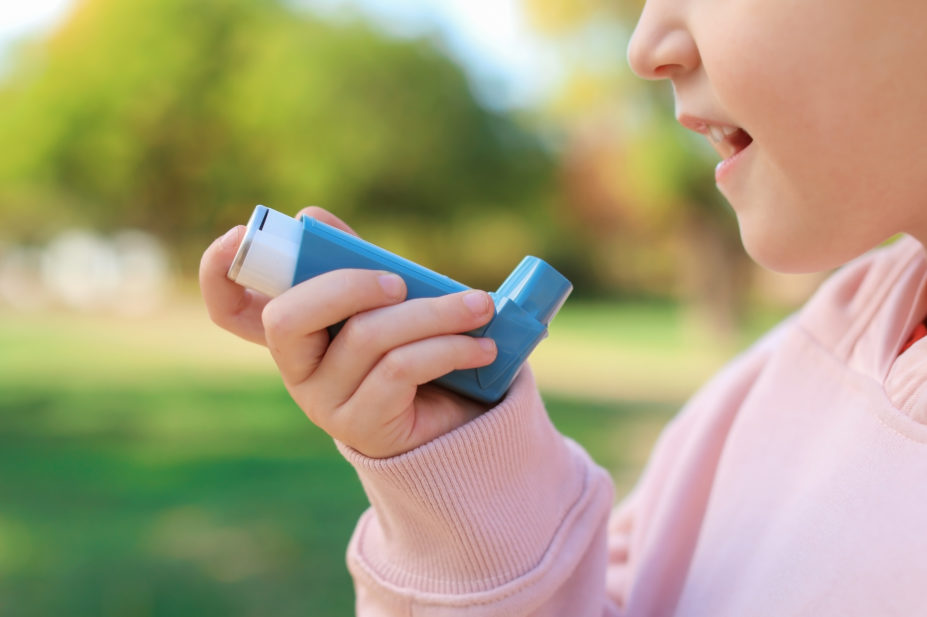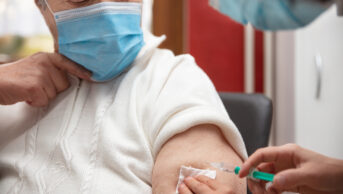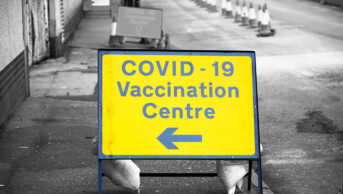
Shutterstock.com
Children aged over five years with poorly controlled asthma are at an increased risk of being hospitalised with COVID-19 and should be considered a priority for vaccination, a study published in Lancet Respiratory Medicine on 30 November 2021 has concluded.
The study’s authors have also estimated that more than 100,000 children across the UK could have benefitted from vaccination during the pandemic.
The national incident cohort study was carried our at the request of the Joint Committee on Vaccination and Immunisation. It involved 752,867 children in Scotland aged 5–17 years of age who were included in the Early Pandemic Evaluation and Enhanced Surveillance of COVID-19 (EAVE-II) platform; a Scotland-wide COVID-19 surveillance platform used to track and forecast the epidemiology of COVID-19 and investigate vaccine effectiveness and safety.
The researchers used the data to investigate the risk of COVID-19 hospitalisation among children with markers of uncontrolled asthma, defined as either a previous asthma-related admission to hospital, or an oral corticosteroid prescription in the previous two years. From that they were then able to calculate hazard ratios for the association between asthma and COVID-19 hospital admission.
They found that, between 1 March 2020 and 27 July 2021, 63,462 of the children had clinically diagnosed asthma and, of these, 4,339 had PCR-confirmed COVID-19 infection. In those with confirmed infection, 67 (1.5%) were admitted to hospital. In contrast, of the 689,404 children who did not have asthma, 40,231 had PCR-confirmed COVID-19; of these, 382 (0.9%) were admitted to hospital with COVID-19.
When using previous hospital admission for asthma as the marker of uncontrolled asthma, they found that children were around six times more likely to be admitted to hospital with COVID-19 than those without asthma (adjusted hazard ratio [aHR] 6.40, 95% confidence interval [CI] 3.27–12.53).
Similarly, when using oral corticosteroid prescriptions as the marker of uncontrolled asthma, they found that children were around three times more likely to be admitted to hospital with COVID-19 (aHR 3.38, CI 1.84–6.21 for three or more prescribed courses of corticosteroids; aHR 3.53, CI 1.87–6.67 for two prescribed courses of corticosteroids), compared with those without asthma.
In their paper, the authors said that the results provided “national evidence” for the first time that children and young people aged 5–17 years with poorly controlled asthma were at increased risk of COVID-19 admission.
They estimated that, during the study period, 9,124 children aged 5–17 years with poorly controlled asthma in Scotland might have benefited from COVID-19 vaccination and approximately 109,488 children might have benefitted across the UK.
“Understanding which children with asthma are at increased risk of serious COVID-19 outcomes is critical to ongoing policy deliberations on vaccine prioritisation,” said Aziz Sheikh, director of the Usher Institute at the University of Edinburgh, Scotland, and lead author of the study.
“Our analysis provides the first national evidence of the risk of COVID-19 hospitalisations among school-aged children with markers of poorly controlled asthma.”
Sheikh said that the “key takeaway” from the study was that keeping children’s asthma under control was “critical “to reducing the risk of COVID-19 hospitalisation.
“Vaccinating those with poorly controlled asthma offers an additional important layer of protection from serious COVID-19 outcomes,” he added.
Sarah Woolnough, chief executive of Asthma UK and the British Lung Foundation, said that the research “helps the JCVI to build a clearer picture about which children should be considered if it’s decided that 5–12-year-olds should receive a COVID-19 vaccine”.
“As we’ve seen in older children and adults, having poorly controlled asthma puts you at increased risk of hospitalisation from COVID-19,” she said.
Woolnough emphasised the importance of making sure that children with asthma have and follow “an asthma action plan, making sure they take their preventer inhaler as prescribed and attending their asthma reviews”.
Read more: Greener inhalers: are we setting the wrong targets?


